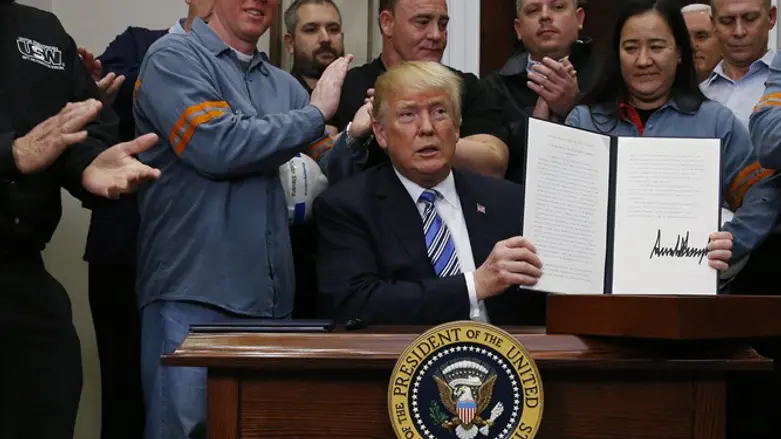
U.S. President Donald Trump on Thursday officially announced steep tariffs on imported steel and aluminum, The Hill reported.
Trump signed paperwork enacting tariffs of 25 percent on steel and 10 percent on aluminum during a hastily arranged event at the White House.
"Today, I am defending America’s national security by placing tariffs on foreign imports of steel and aluminum," Trump said in the Roosevelt Room, flanked by steel and aluminum workers.
Trump called the struggles of the domestic steel and aluminum industries a "travesty", adding, "This has been an assault on our country.”
The president temporarily exempted Canada and Mexico from the tariffs, arguing his administration would continue talks with the North American Free Trade Agreement (NAFTA) partners. Trump has separately discussed withdrawing the United States from NAFTA.
Trump alluded earlier there could be additional exemptions for Australia, though it is unclear what that will entail.
“We'll be doing something with them,” the president was quoted as having said during a Cabinet meeting. “We'll be doing something with some other countries.”
White House officials said that all other countries will be able to make their case as to why they should be exempt from the tariffs and what they will do to shore up their national security relationship with the United States.
The president will have the discretion to add or subtract countries and raise or lower the tariffs at any time, a senior administration official said.
Trump has long argued that tariffs are needed to revive the U.S. steel and aluminum industries. He enacted the tariffs using a rarely used legal provision that allows the president to impose tariffs unilaterally if imports are determined to pose a national security risk.
Critics have called it a thinly veiled excuse to enact protectionist policies and gain leverage over Canada and Mexico in the ongoing renegotiation of NAFTA.
Earlier this week, Trump’s National Economic Council Director Gary Cohn, who argued that the measures could anger allies and hurt the economy, announced his resignation after losing the tariff debate.
Congressional Republicans also expressed deep concern over the moves, voicing fear that Trump could be poised to take even more aggressive actions on trade in the future, including ripping up NAFTA.